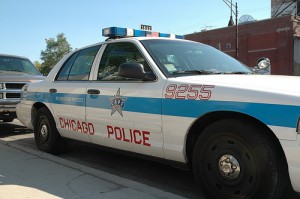Chicago Police Stop Settling Cases; Lawsuits against Cops Plummet
The Chicago Police Department has decided to stop settling (the Chicago Sun Times also has the story) some lawsuits against its officers. Chicago, like many large cities, traditionally settled virtually any lawsuit brought against its police department due to the actions of their officers, even if the lawsuits had little or no merit.
The reasoning behind this was the fact that a quick settlement almost always costs far less money, time, and resources than a protracted trial. However, they have been experimenting with a year-long program of referring lawsuits demanding relatively small amounts of money to outside law firms, paying them a flat fee of $35,000, plus a $15,000 bonus if they win. While this is more expensive than most settlements, the word quickly got out, and plaintiffs’ attorneys who specialize in police misconduct cases in Chicago now must spend more time weighing the costs of filing a lawsuit against the police department with the likelihood of success.
 Final numbers aren’t available, but it’s possible that this will end up saving the city money in the long run. However, it’s clear that bringing individual cases to trial is far more expensive. One attorney in the story noted that he offered to settle his client’s case against the police department for $10,000. The jury ended up awarding him $7,500. This is in addition to the $35,000 they had to pay to an outside law firm and over $150,000 in attorney’s fees for the winning plaintiff.
Final numbers aren’t available, but it’s possible that this will end up saving the city money in the long run. However, it’s clear that bringing individual cases to trial is far more expensive. One attorney in the story noted that he offered to settle his client’s case against the police department for $10,000. The jury ended up awarding him $7,500. This is in addition to the $35,000 they had to pay to an outside law firm and over $150,000 in attorney’s fees for the winning plaintiff.
However, that’s just one case, and if the drop in lawsuits continues, the city might end up saving a great deal of money.
Although I strongly believe that police departments and officers need to be held strictly accountable for any misconduct, I think Chicago’s new strategy is a good idea. If it ends up saving them money, it’s obviously something that the taxpayers should support, and other large cities should possibly consider implementing a similar program.
More importantly, however, is the fact that this is likely to reduce the number of frivolous lawsuits brought against police departments. I should note that this policy doesn’t appear to involve taking every single case to trial, regardless of its merit. Instead, they’re only taking a hard line on “defensible” cases, which is probably a euphemism for “frivolous.” Basically, they’re defending cases which they think they have a reasonable chance of winning.
This seems like a perfectly reasonable policy. After all, in any lawsuit, whether it’s against a police department or anyone else, the burden of proof rests on the plaintiff. This means that it’s up to the person bringing the lawsuit to prove the facts on which their case rests. In theory, the defendant doesn’t have to prove a thing. A policy of knee-jerk settlement might undermine this principle.
Furthermore, the individual police officers involved in these cases can find their personal and professional reputations damaged if the police department is quick to settle, even if the officer did absolutely nothing wrong. Obviously, this doesn’t serve the objective of holding police accountable for their actions, and might have the opposite effect. Society likes to believe that its public servants, especially police, hold themselves to the highest standards. Unfortunately, being human beings, individual police officers aren’t perfect. However, when police departments settle almost every misconduct case against them, the public might assume that all of the cases are nonsense, since no details typically become publicly available.
However, if more police misconduct cases went to trial, the details of these incidents would be more easily aired to the public, and we’d be able to see with more accuracy just how many police misconduct cases have merit. If it turns out that most of them are bunk, well, good. However, if it turns out that police misconduct is more common than thought, this could serve as a wake-up call for reform.
Of course, it’s largely up to police departments to determine if these cases go to trial, since the majority of plaintiffs are likely to accept a reasonable settlement, and aren’t likely to refuse to settle. So, that decision is pretty much up to the police departments, and if they don’t want a case to go to trial (thus giving them more publicity), it’s almost certain that they can settle and avoid this.
According to LegalMatch case data, complaints of police misconduct are disturbingly common all across the U.S. Of course, most of these cases, excluding the ones that are very clearly frivolous, or end up being highly contentious, will settle, and never see the inside of a courtroom. As a result, we have no way of knowing how common police misconduct actually is.
And hopefully, as a secondary result of Chicago’s desire to save money, this information will come out. Time will tell.

Comments
I don’t think they should have just settled cases in the first place. This decision will certainly save Chicago taxpayers in the long run. Plus it just makes the cops look like sissies when they run from any litigation.
They control all the lawyers – that’s a good way to get out of lawsuits. They are doing it all the time and you don’t even know it.